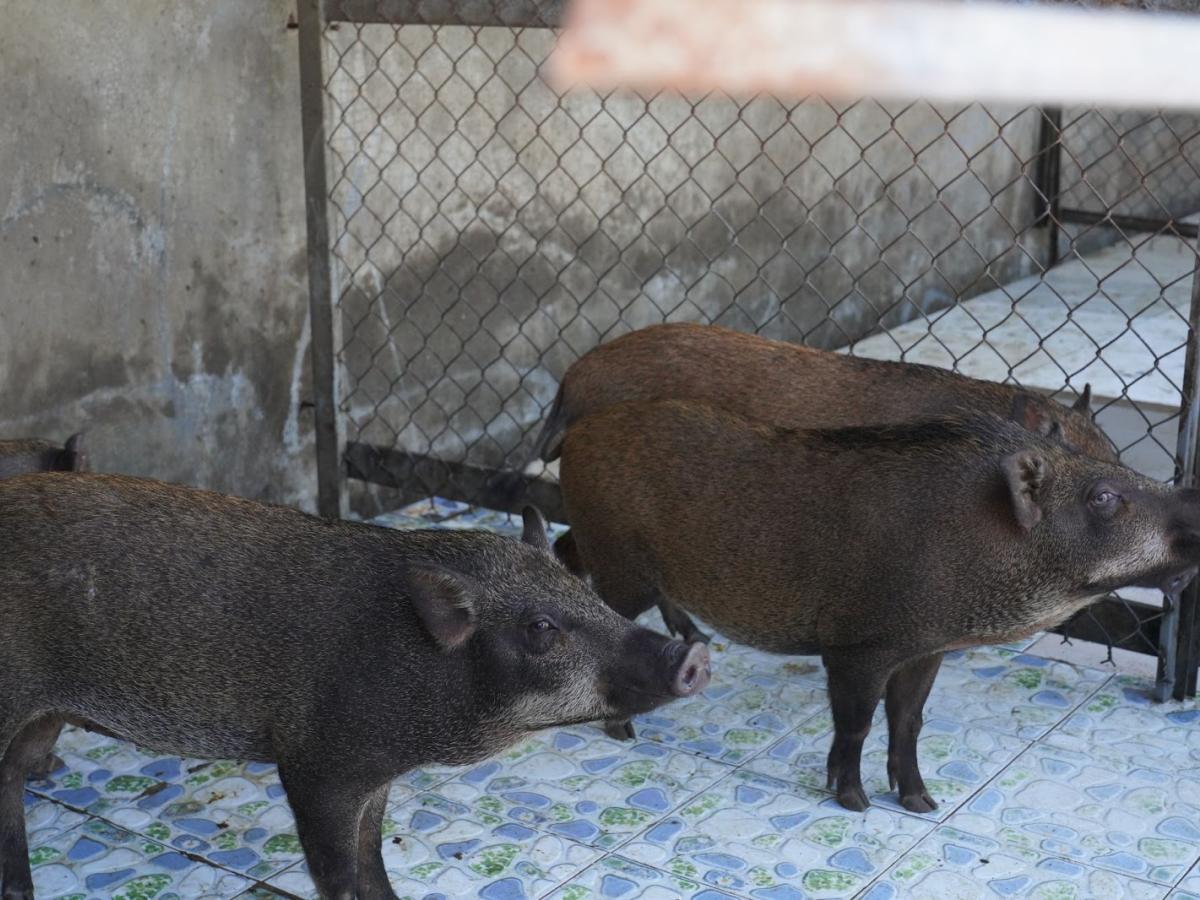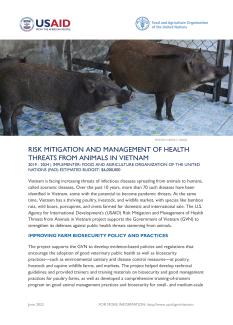2019 - 2024 | IMPLEMENTER: FOOD AND AGRICULTURE ORGANIZATION OF THE UNITED NATIONS (FAO) | ESTIMATED BUDGET: $6,000,000
Vietnam is facing increasing threats of infectious diseases spreading from animals to humans, called zoonotic diseases. Over the past 10 years, more than 70 such diseases have been identified in Vietnam, some with the potential to become pandemic threats. At the same time, Vietnam has a thriving poultry, livestock, and wildlife market, with species like bamboo rats, wild boars, porcupines, and civets farmed for domestic and international sale. The U.S. Agency for International Development’s (USAID) Risk Mitigation and Management of Health Threats from Animals in Vietnam project supports the Government of Vietnam (GVN) to strengthen its defenses against public health threats stemming from animals.
IMPROVING FARM BIOSECURITY POLICY AND PRACTICES
The project supports the GVN to develop evidence-based policies and regulations that encourage the adoption of good veterinary public health as well as biosecurity practices—such as environmental sanitary and disease control measures—at poultry, livestock and captive wildlife farms, and markets. The project helped develop technical guidelines and provided trainers and training materials on biosecurity and good management practices for poultry farms, as well as developed a comprehensive training-of-trainers program on good animal management practices and biosecurity for small- and medium-scale pig breeding farms.
STRENGTHENING ANIMAL HEALTH SURVEILLANCE AND REPORTING
The project supports GVN efforts to strengthen animal health surveillance and animal health data management for better zoonotic disease prevention and control. This includes supporting a national avian influenza surveillance program to enhance the collection, analysis, and interpretation of data at live bird markets in nearly half of Vietnam’s provinces. The project helped the GVN to establish and launch a national information system for reporting and analyzing data on infectious diseases. The project provided technical assistance to develop and pilot data management systems for captive wildlife facilities and poultry farms. In addition, the project supported the GVN to better manage antimicrobial resistance (AMR) and antimicrobial use issues through the active surveillance of livestock.
IMPROVING DIAGNOSTIC CAPABILITIES
The project improves diagnostic capabilities to reduce the risk of zoonotic diseases and AMR being transmitted along the animal production chain. The project strengthened the veterinary diagnostic capabilities of national and regional laboratories. In addition, with project support, the GVN’s National Center for Veterinary Diagnostics and seven regional animal health offices are now able to perform PCR (polymerase chain reaction) testing for COVID-19 and other animal diseases, helping to prevent and control COVID-19 and other outbreaks.
TRAINING FARM WORKERS AND PROVINCIAL AUTHORITIES
The project provides training to animal farm workers as well as provincial authorities to strengthen their management practices. For instance, the project established model pig farms and conducted training at these farms for industry workers to learn about farm biosecurity and waste management best practices. The project also trains provincial authorities on the collection of wildlife farm coordinates using GPS trackers, smart phones, and Google maps to improve their monitoring and enforcement.
IMPACT
The project contributes to reducing the risk of emergence of infectious diseases transmitted from animals to humans, mitigating the possibility of a human pandemic.
TARGETED LOCALITIES
The project works at the national level.


